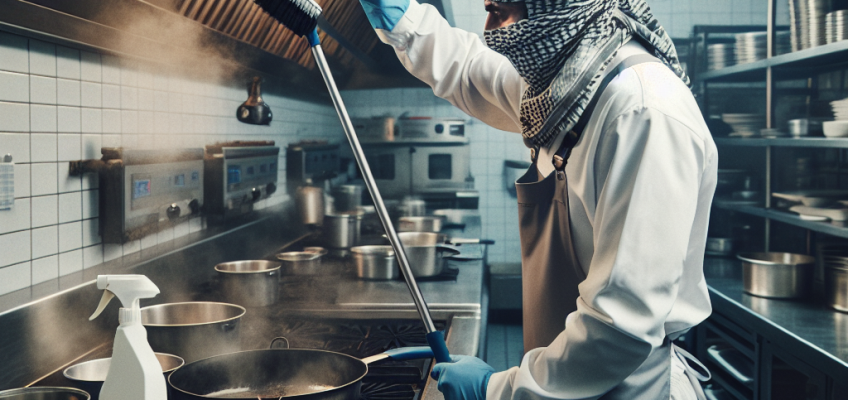Understanding Local Health Codes: Hood Cleaning Requirements
Operating a commercial kitchen is a sizzling endeavor that goes beyond crafting delicious meals. One of the crucial aspects of maintaining a safe and hygienic kitchen environment is adhering to local health codes, especially regarding commercial kitchen hood cleaning. Let’s dive into how these standards influence your Austin establishment and why understanding these codes is essential for your business.
Why Hood Cleaning is Essential
Hood cleaning is not just about keeping your kitchen looking pristine. It’s a fundamental safety practice essential for fire protection and health compliance. Over time, grease accumulates in exhaust hoods, fans, and ducts, creating a significant fire hazard. This buildup, if left unchecked, can ignite and cause devastating damage to property and potentially harm staff and patrons.
Moreover, regular restaurant hood cleaning ensures that your kitchen adheres to ventilation and air quality standards, contributing to a healthier working environment. A well-maintained exhaust system efficiently removes heat, fumes, and smoke, which enhances air quality and keeps your kitchen energy-efficient.
Deciphering Local Health Codes
When it comes to Austin Hood Cleaning requirements, the Texas Department of State Health Services outlines clear guidelines that businesses must follow. Local health codes dictate the frequency, cleaning methods, and documentation needed for hood cleaning to ensure compliance and safety.
- Frequency: Depending on the type of cooking and volume of food being prepared, the frequency of cleaning can vary. Most health codes recommend professional hood cleaning every three months, but high-volume operations may require monthly cleanings.
- Certified Professionals: Only certified and trained professionals should perform hood cleaning to ensure a thorough job that meets health code standards. DIY methods might not fully remove buildup and can lead to costly violations.
- Record Keeping: Integral to compliance is keeping records of hood cleaning sessions. Local authorities may request documentation to verify compliance, so maintaining meticulous records is vital.
Penalties for Non-compliance
Neglecting or inadequately performing exhaust hood cleaning can lead to severe penalties, including hefty fines and potential business shutdowns. Food establishments cited for non-compliance may experience reputational damage, affecting customer trust and loyalty. Understanding how health codes impact your operational protocols is thus critical in maintaining a stellar reputation and fostering trust among patrons.
Best Practices for Restaurant Hood Cleaning
To stay compliant with health codes while ensuring efficient exhaust hood cleaning, consider implementing these best practices:
- Schedule Regular Cleanings: Create a cleaning schedule that aligns with local health codes. Consistency prevents significant grease buildup and minimizes fire risk.
- Inspect Regularly: Conduct routine inspections of your hood system to identify areas that may require immediate attention or repair.
- Partner with Professionals: Engage with certified hood cleaning companies that understand both local codes and best cleaning practices to ensure comprehensive coverage and compliance.
- Train Staff: Educate kitchen staff on the importance of hood cleaning and basic maintenance practices. Their awareness can help prevent potential safety hazards.
Selecting the Right Hood Cleaning Service
Finding a reputable Austin Hood Cleaning service is paramount in keeping your kitchen compliant and safe. Look for providers that offer:
- Certifications and Experience: Choose a company with well-trained technicians certified in commercial kitchen hood cleaning standards.
- Comprehensive Services: Select providers offering deep cleaning services that cover all components of your exhaust system — hoods, ducts, fans, and filters.
- Transparent Pricing and Documentation: A reliable service should offer clear pricing structures and provide detailed cleaning reports for your records.
- Emergency Availability: Choose a responsive service with 24/7 availability to address unexpected issues promptly.
Conclusion
In light of stringent local health codes, prioritizing hood cleaning is imperative for the safety and success of your Austin food establishment. By understanding and adhering to these standards, you can avert potential hazards, avoid penalties, and maintain an exemplary level of kitchen cleanliness. Partnering with skilled professionals for Austin Hood Cleaning ensures your business not only meets but exceeds these guiding principles, safeguarding your investment and reputation.










